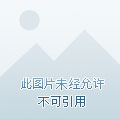The first allergy season after "Yangkang" ushered in, and many people reported that their allergy symptoms were more serious than before.

Copyright images in the gallery are not authorized to be reproduced
At present, various places have entered the pollen season, and northern cities will also usher in the peak of pollen concentration. Some people have symptoms such as sneezing, runny nose, and itchy nose of allergic rhinitis before they are infected with the new coronavirus, but they rarely cough. After "Yangkang", when encountering allergen stimulation (such as pollen, etc.), there are more obvious coughing and even wheezing symptoms.
The doctor reminded that "Yangkang" needs to pay special attention to airway hypersensitivity.
01
Increase in recent visits to the clinic for allergic symptoms
"The temperature in Beijing has warmed up this spring, and the allergy season has arrived early. Recently, the number of patients with symptoms such as itchy nose and nasal discharge has increased by 50% compared with before, of which 30% are diagnosed with pollen allergy and 20% are upper respiratory tract infections. Jiang Zidong, chief physician of the Department of Otorhinolaryngology of Peking Union Medical College Hospital, said that at present, various places have entered the pollen allergy season, and the general public needs to pay special attention to distinguish allergies from upper respiratory tract infections and take corresponding treatment measures.
Copyright images in the gallery are not authorized to be reproduced
"Beijing's pollen allergy season generally lasts from March to June, and the main pollen species will also vary significantly depending on the pollination period of flowers and plants." Jiang Zidong introduced that pollen allergy is generally manifested as systemic allergies, with symptoms such as red and swollen eyes, itchy nose, sneezing, runny nose, dry and itchy throat, and cough. The main difference between pollen allergy and upper respiratory tract infection is whether or not there is a fever, and if there is severe pain in the throat and fever symptoms, it is mostly related to upper respiratory tract infection.
02
Beware of inducing airway hypersensitivity after "Yangkang"
Many people have prolonged cough symptoms after "Yangkang", and in addition to the possibility of infection, the more common cause is virus-induced airway hyperreaction (a common manifestation of airway allergy).
Gu Qinglong, vice president of the Children's Hospital Affiliated to the Capital Institute of Pediatrics, pointed out that for patients with allergic rhinitis symptoms, special attention should be paid to some allergic rhinitis people before being infected with the new crown virus, allergies do not have cough-like symptoms, "Yangkang" after allergies appear more obvious cough symptoms, which should be vigilant against virus-induced airway hypersensitivity reactions, and then easy to induce asthma, which may be a new symptom that needs special attention after "Yangkang" in allergic people.
Copyright images in the gallery are not authorized to be reproduced
Airway hypersensitivity is mainly due to increased airway responsiveness under the stimulation of physical and chemical factors such as viral respiratory infections, SO2, cold air, dry air, hypotonic and hypertonic solutions.
03
Spring allergy prevention, two groups of people should pay special attention
For the prevention of the first allergy season after "Yangkang", experts gave several suggestions.
1. People with pollen allergy:
It is recommended to wear a mask when going out to avoid going to the flower gathering place to enjoy the flowers and aggravate allergic reactions.
People with allergies should try to avoid going out between 10 a.m. and 5 p.m. when pollen concentrations are high. During the pollen season, allergic people can "watch the sky" protection, sunny, breezy, high temperature weather helps pollen concentration increase, obvious rainfall and wind above level 4 help pollen concentration decrease.
Jiang Zidong said that the most important treatment method for pollen allergy is prevention. Patients diagnosed with hay fever can use drugs containing cromolyn sodium one week in advance to prevent the onset of allergic symptoms. Once allergic symptoms occur, it is necessary to use nasal spray hormones and oral anti-allergic drugs as soon as possible, and untimely medication may trigger allergic asthma. It should be noted that allergy patients do not need to use anti-inflammatory drugs and antivirals, only need to take anti-allergic drugs, so be sure to distinguish between upper respiratory tract infection treatment and allergy treatment.
For people with allergy symptoms who must be exposed to air and pollen due to work and life, Jiang Zidong recommends that this group of people can wear nasal filters. Patients with more severe allergy symptoms must be isolated from allergens. For allergy patients who first appeared this year, it is recommended to first go to a professional hospital to check the allergen and treat it symptomatically. For patients with perennial allergies, allergen avoidance should be carried out first, and patients with conditions can undergo desensitization therapy.
2. People with a history of previous spring allergies:
Prophylactic administration can be carried out, and for some people who will have allergic reactions at a fixed time every spring, anti-allergic drugs such as nasal hormones and antihistamines can be started a week or two in advance to avoid poor results after the attack.
Gu Qinglong suggested that if there is a significant aggravation of symptoms during this allergy season, such as: obvious eye itching, nasal itching, nasal congestion and other symptoms, or cough symptoms, especially aggravated after exercise, or the use of previously used drugs does not work, etc., seek medical attention as soon as possible.